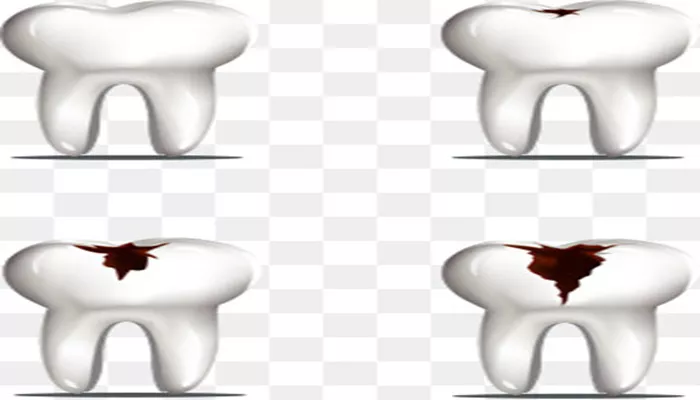Tooth decay, also known as dental caries, is a widespread dental problem that affects people of all ages. It occurs when the hard surface of the teeth is damaged due to the action of acids produced by bacteria in the mouth. Understanding the causes of tooth decay is essential for prevention and maintaining good oral health. In this article, we will explore the primary causes of tooth decay, how it develops, and what you can do to prevent it.
Understanding Tooth Decay
Tooth decay is a process that leads to the destruction of tooth enamel, the protective outer layer of the teeth. It begins with the formation of plaque, a sticky film of bacteria that forms on the teeth after eating. When we consume sugary or carbohydrate-rich foods, the bacteria in plaque produce acids that attack the enamel. Over time, this can lead to cavities and more severe dental issues.
Primary Causes of Tooth Decay
Tooth decay is a complex process influenced by various factors. Here are the primary causes:
1. Poor Oral Hygiene
One of the leading causes of tooth decay is poor oral hygiene. When individuals do not brush and floss regularly, plaque builds up on the teeth. This plaque can harden into tartar, making it more difficult to remove. Neglecting oral hygiene allows bacteria to thrive, increasing the risk of tooth decay.
2. High Sugar and Acidic Diet
Diet plays a significant role in the development of tooth decay. Foods high in sugar and acids contribute to the decay process in several ways:
Sugar: Bacteria in the mouth feed on sugars from food and drinks. When sugars are consumed, they produce acids that attack the enamel. Frequent consumption of sugary snacks and beverages increases the risk of decay.
Acidic Foods and Drinks: Foods and drinks that are high in acid, such as citrus fruits, soda, and vinegar, can erode enamel directly. This erosion makes teeth more susceptible to decay.
3. Lack of Fluoride
Fluoride is a mineral that helps strengthen tooth enamel and prevent decay. It is found in many dental products, such as toothpaste and mouth rinses. It is also present in drinking water in many communities. A lack of fluoride can weaken enamel and increase the risk of tooth decay.
4. Dry Mouth
Saliva plays a crucial role in maintaining oral health. It helps wash away food particles and neutralizes acids produced by bacteria. When a person has dry mouth (xerostomia), there is less saliva to perform these protective functions. This condition can be caused by various factors, including:
Medications: Certain medications can reduce saliva production, leading to dry mouth.
Medical Conditions: Conditions such as diabetes or autoimmune diseases can also contribute to dry mouth.
Dehydration: Not drinking enough water can lead to reduced saliva flow.
5. Dental Conditions
Certain dental conditions can increase the risk of tooth decay, including:
Tooth Alignment: Misaligned teeth can create tight spaces that are difficult to clean. This can lead to plaque buildup and increased decay risk.
Worn Enamel: Teeth that have been worn down due to grinding or erosion are more susceptible to decay.
Existing Cavities: If a person already has cavities, they are at a higher risk for developing new ones.
6. Age
Age can also be a factor in the development of tooth decay. Children and older adults are particularly vulnerable:
Children: Young children often consume more sugary foods and drinks, and they may not have developed proper oral hygiene habits yet. This makes them more susceptible to decay.
Older Adults: As people age, they may experience gum recession and enamel wear, which can increase the risk of decay.
7. Lifestyle Factors
Certain lifestyle choices can contribute to the development of tooth decay:
Tobacco Use: Smoking or using other tobacco products can lead to dry mouth and increased plaque buildup, both of which contribute to decay.
Frequent Snacking: Snacking throughout the day, especially on sugary or acidic foods, can increase the frequency of acid attacks on the teeth.
Poor Nutrition: A diet lacking in essential nutrients can weaken the immune system and reduce the body’s ability to fight off infections, including those in the mouth.
Prevention of Tooth Decay
Preventing tooth decay is essential for maintaining good oral health. Here are some effective strategies:
1. Maintain Good Oral Hygiene
Brush Twice a Day: Use fluoride toothpaste and brush for at least two minutes each time. Pay attention to all surfaces of the teeth.
Floss Daily: Flossing removes plaque and food particles from between the teeth, where a toothbrush cannot reach.
2. Regular Dental Check-Ups
Visit your dentist regularly for check-ups and cleanings. Professional cleanings can remove tartar buildup, and your dentist can identify early signs of decay.
3. Healthy Diet
Limit sugary snacks and beverages. Instead, focus on a balanced diet rich in fruits, vegetables, whole grains, and lean proteins. Foods high in calcium and phosphorus can help strengthen teeth.
4. Use Fluoride
Fluoride strengthens enamel and helps prevent cavities. Use fluoride toothpaste and consider fluoride treatments from your dentist.
5. Dental Sealants
Dental sealants are protective coatings applied to the chewing surfaces of back teeth. They can prevent cavities by sealing out food particles and bacteria.
6. Stay Hydrated
Drink plenty of water throughout the day to help maintain saliva production. If you experience dry mouth, talk to your dentist about possible solutions.
7. Educate Yourself and Others
Understanding the importance of oral health can help you and your family make better choices. Teach children about proper brushing and flossing techniques, and encourage them to develop healthy habits early.
Conclusion
Tooth decay is a common dental problem caused by a combination of factors, including poor oral hygiene, diet, lack of fluoride, dry mouth, and dental conditions. Understanding these causes is essential for prevention. By maintaining good oral hygiene, visiting the dentist regularly, and making healthy dietary choices, you can significantly reduce your risk of tooth decay.
Related topics:

